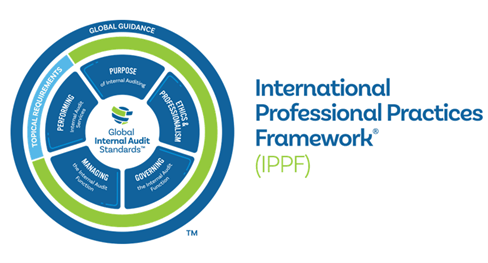Pembles personnel comply with the updated Internal Audit Code of Practice to ensure client confidence in the integrity of our work. Effective from January 2025, this new code aims to elevate the effectiveness and impact of internal audit functions within organisations across the financial services, private, and third sectors in the UK and Ireland. They are regarded as a benchmark of good practice against which organisations should assess their internal audit function.
“The Standards guide the worldwide professional practice of internal auditing, are principle-based, and serve as a basis for evaluating and elevating the quality of the internal audit function. At the heart of the Standards are 15 guiding principles that enable effective internal auditing. Each principle is supported by standards that contain requirements, considerations for implementation, and examples of evidence of conformance. Together, these elements help internal auditors achieve the principles and fulfill the Purpose of Internal Auditing.” Institute of Internal Auditors, 2024.

